Current Project: 2024 - 2027
RLA 7/028 – Strengthening Regional Capabilities on the Application of Nuclear and Isotopic Techniques to Increase Knowledge about Stressors that Affect Marine and Coastal Sustainable Management (ARCAL CLXXXIX)
Previous Projects:
RLA 7/025 – Strengthening Capacities in Marine and Coastal Environments Using Nuclear and Isotopic Techniques (2020-2023).
Participating Institutions:
Instituto Público de Investigación de Acuicultura y Pesca (IPIAP)

Research Areas::
- Ocean Acidification.
- Harmful Algal Blooms (HABs) and Marine Biotoxins.
- Microplastic contamination.
ESPOL. Facultad de Ciencias de la Vida (FCV)

- Ocean Acidification.
- Harmful Algal Blooms (HABs) and Marine Biotoxins.
- Microplastic contamination.
- Chemical Contamination.
- Eutrophication.
ESPOL. Facultad de Ingeniería en Ciencias de la Tierra (FICT).

Research Areas::
- Chemical Contamination.
- Eutrophication.
ESPOL. Facultad de Ingeniería Marítima y Ciencias del Mar (FIMCM).

Research Areas::
- Ocean Acidification.
- Harmful Algal Blooms (HABs) and Marine Biotoxins.
- Microplastic contamination.
- Chemical Contamination.
- Eutrophication.
Universidad Laica Eloy Alfaro de Manabí (ULEAM).


Research Areas::
- Ocean Acidification.
- Chemical Contamination.
- Eutrophication.
THE PROBLEM
Billions of people depend on the oceans for their livelihoods, therefore greater efforts and interventions are needed to conserve and sustainably use ocean resources.
Progress in the sustainable use and conservation of the oceans continues to require effective management and strategies to combat the adverse effects of overfishing, increasing ocean acidification, marine debris and nutrient pollution, and worsening coastal eutrophication.
Anthropogenic CO2 accelerates ocean warming and acidification by lowering the pH of seawater and the saturation state of calcium carbonate. The coincidence of naturally high CO2 conditions with periodic warming events caused by El Niño-Southern Oscillation (ENSO) is an issue that must be deeply analyzed both in continental Ecuador and in the Galapagos Islands.
High-density algal blooms can cause marine life to be anoxiated, killing them and blocking sunlight at the surface of the water column, even at low densities. In Ecuador, there is information on at least sixty-seven HAB events between 1997 and 2017, with 12 phytoplankton species identified as toxin producers. Oceanographic and climatic conditions play an important role in the occurrence of harmful algal blooms (HAB), which can also be exacerbated by climate variability, El Niño – Southern Oscillation (ENSO), and anthropogenic nutrient loading from different sources.
In Ecuador, there is little published information on the impact of plastic on underwater life. Plastic debris (>4cm) in Humboldt squid stomachs and the impact of plastics on beaches, especially in the Gulf of Guayaquil, have been reported. Currently, microplastic pollution studies focus on the impact on underwater life. Due to their small size (<5 mm) they can be easily ingested by aquatic organisms such as fish, molluscs, and eventually humans, where their effects have not yet been reported.
INFORMATION FOR ACTION
ESPOL's Environmental Health and Toxicological Research Laboratory maintains a line of research on the presence and impacts of macroplastic contamination in the areas of Data de Posorja (sandy beaches), the Manglares El Salado Wildlife Production Reserve, coastal beach areas and mangrove ecosystem in the Galapagos Archipelago and Antarctic Peninsula.
GMaRE is a joint research group made up of members of the Charles Darwin Foundation for the Galapagos CDF, an international non-profit scientific organization, and the Escuela Superior Politécnica del Litoral ESPOL. The focus of the joint research group is the understanding of the Galapagos marine ecosystems to support their conservation.
The ULEAM-EBIOAC group aims to establish research on ocean acidification in Ecuador and related to equatorial species. The group began in 2014 under a collaboration framework between the National Secretariat for Higher Education, Science and Technology SENESCYT and ESPOL. Since 2016, the EBIOAC group has been housed in the Faculty of Marine Sciences of the Universidad ULEAM.
The Inocar whose objective is to carry out, direct, coordinate and control all oceanographic, geophysical and maritime environmental science monitoring and exploration work.
Country Members:
Eddy Sanclemente Ordoñez. Geology Engineer, MSc. in Earth and Environmental Sciences in System Dynamics and Geological Hazards, PhD in Planet Earth Sciences.
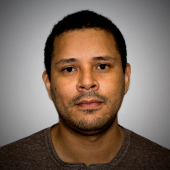
Escuela Superior Politécnica del Litoral (ESPOL). Facultad de Ingeniería en Ciencias de la Tierra (FICT).
Role in the Project: National Counterpart – Ecuador
Contact info: esanclem@espol.edu.ec
Professor at the Faculty of Engineering in Earth Sciences (FICT) - Escuela Superior Politécnica del Litoral, Ecuador and Deputy Dean of the Faculty of Engineering in Earth Sciences-ESPOL. In 2007 he obtained the title of Electrical Engineer specializing in Power, Escuela Superior Politécnica del Litoral, Ecuador. He holds a Master's degree in Earth and Environmental Sciences in System Dynamics and Geological Hazards, University of Nice Sophia-Antipolis, France (2010) and a PhD in Planet Earth Sciences, University of Nice Sophia-Antipolis, France (2014).
Mercy J. Borbor Cordova. Oceanographer. MSc, PhD in Environmental Sciences.
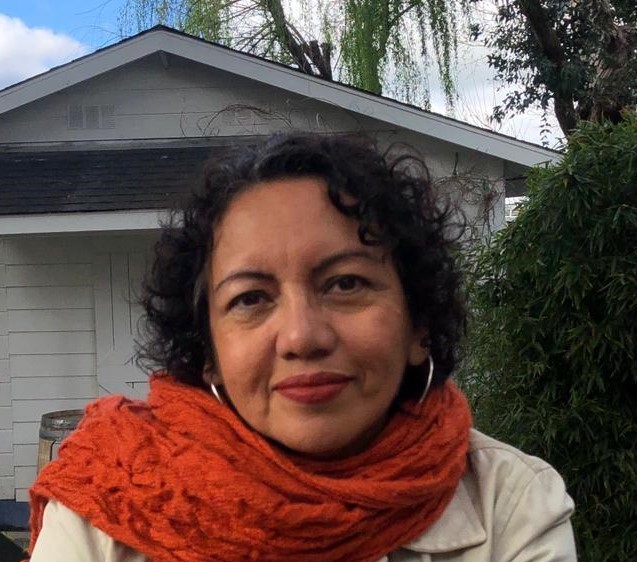
Escuela Superior Politécnica del Litoral (ESPOL).
Role in the Project: : Researcher in the HAB and Eutrophication component.
Contact info: meborbor@espol.edu.ec
Mercy J Borbor Córdova, an oceanographer with a Ph.D. in Environmental Sciences from the School of Environmental and Forest Sciences at the State University of New York. She is a professor and researcher at the Escuela Superior Politécnica del Litoral (ESPOL, Ecuador). She managed to combine functions as a researcher and public official involved in decision-making processes at the local, regional and national levels in the areas of environmental management and climate change policies. In her role as a researcher, she applies a socio-ecological systems conceptual framework, using a space-time analysis to her studies of climate variability and its relationship to harmful algal blooms (HABs) and eutrophication, with an emphasis on the interaction of climate and human health and climate risk reduction. Mercy is dedicated to researching and transferring science to different actors, identifying measures of resilience and adaptation to climate change. She is the lead author for the Assessment Report 6 (AR6) in the Mitigation Working Group III, (2019-2022) of the Intergovernmental Panel on Climate Change (IPCC), and is a member of the expert group for capacity development for Climate Services, of the World Meteorological Organization (WMO).
Katiuska Paola Calle Delgado. Biologist, Aquaculture Engineer, MSc. PhD. in Marine Sciences with orientation in Ecotoxicology.

Escuela Superior Politécnica del Litoral (ESPOL).
Role in the Project: Researcher in the Eutrophication and Microplastics component.
Contact info: pcalle@espol.edu.ec
Paola Calle Delgado, biologist, aquaculture engineer with a master's and doctorate in Marine Sciences with a focus on Ecotoxicology from the University of South Carolina. She is a professor and researcher at the Escuela Superior Politécnica del Litoral (ESPOL, Ecuador). She has been Deputy Dean of the Faculties of Maritime Engineering and Marine Sciences (2012-2015) and of the Faculty of Life Sciences (2015-2017). She currently collaborates with the Dean of Research and is Director of the Laboratory of Toxicological Research and Environmental Health of ESPOL. As a researcher, she has active research projects focused on the fate, distribution and adverse effects that various inorganic, organic and emerging contaminants cause in aquatic ecosystems. She assesses environmental and human health in the Gulf of Guayaquil, the Antarctic Peninsula, and the Galapagos Islands.
Patricia Castillo-Briceno. Marine Biologist, MSc. in Aquaculture, MSc. in Technology and Research in Experimental Biomedical Sciences, PhD. in Biomedicine.

Universidad Laica Eloy Alfaro de Manabí (ULRAM), Equatorial Biome & Ocean Acidification (EBIOAC Lab).
Role in the Project: Ocean Acidification component researcher
Contact info: pat.castillobriceno@gmail.com; 00593 967971257
Researcher and Advisor in applied animal physiology in the evaluation of the impact of climatic and environmental alterations. Marine Biologist (PUCE, Ecuador); MSc in Technology and Research in Experimental Sciences (University of Murcia, Spain); MSc in Aquaculture (ESPOL, Ecuador); PhD in Biomedicine (Universidad de Murcia, Spain). With extensive academic and research experience. Eg: at the CNRS Developmental Biology Institute – Aix-Marseille University (France); Pasteur Institute of Paris (France), University of Cambridge (UK); ESPOL (Ecuador), and ULEAM (Ecuador); and as an evaluator in international calls in higher education for the European Commission.
Other outstanding merits: IVLP's student (United States, 2017), postdoc Foundation pour la Recherche Medicale (France, 2011-2013), FPU doctoral fellow of the Ministry of Science (Spain, 2006-2010), Vice-President of the Ecuadorian Society of Biology (2020-current), Co-Founder of the Ecuadorian Network of Women Scientists REMCI (2016-current), President of OWSD-Ecuador (Organization for Women in Science for the Developing World).
Telmo de la Cuadra Frías. Oceanographer, MSc. in Environmental Sciences

Instituto Público de Investigación de Acuicultura y Pesca (IPIAP)
Role in the Project: Researcher
Contact info: tdelacuadra@gmail.com, tdelacuadra@institutopesca.gob.ec / (+593) 999878172.
Oceanographer with a master's degree in Environmental Sciences and a diploma in Indexed Insurance for Disaster Risk Management and Adaptation to Climate Change. He has participated in research projects related to Climate Variability and the Impacts of the warm and cold phases of the ENSO cycle on fishery resources, Adaptation to Climate Change, and Disaster Risk Management in Latin America. In his role as a researcher of pelagic-coastal and bento-demersal ecosystems, he applies the fisheries ecosystem approach promoted by FAO. He has been a member of the Scientific Committee for the Regional Study of the El Niño Phenomenon (ERFEN-CPPS), Institutional Coordinator of the National Climate Program, and Institutional Delegate of the Scientific Consulting Group of the Ecuadorian Antarctic Institute (IAE). He currently works as Coordinator of the Resources, Oceanography and Climate Change Unit of the Instituto Público de Investigación de Acuicultura y Pesca (IPIAP).
Gustavo Adolfo Domínguez Cazco.Biologist, Ph.D. in Environmental Health Sciences.
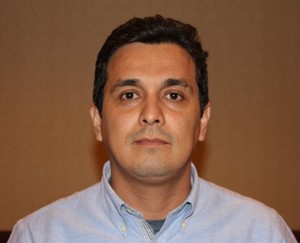
Escuela Superior Politécnica del Litoral (ESPOL).
Role in the Project: Researcher in Microplastics component.
Contact info: gdoming@espol.edu.ec / 593 96 8246023
Gustavo Domínguez graduated as a biologist from the Universidad de Guayaquil in 1997. He then did his doctoral studies from 2007 to 2012 at the University of South Carolina where he investigated the effects of estrogenic pollutants on fish reproduction. From 2013 to 2015 he did a postdoc at the University of Wisconsin-Milwaukee, where he investigated the impacts of nanoparticles on aquatic biota. In 2015, he joined the ESPOL Faculty of Life Sciences as a professor and researcher. As a teacher he has taught courses such as Toxicology, Environmental Pollution and General Ecology. Since 2019 he has been the teaching coordinator for the environmental area. Since 2018 he has been researching the impact of microplastics on aquatic organisms in the mangrove ecosystem. He has coordinated the participation of ESPOL in the Ecuadorian network of macro and microplastics in the national sampling of marine litter on beaches.
Daniel Omar Garcés León. Geological Engineer, MSc. in Territorial Planning.

Escuela Superior Politécnica del Litoral (ESPOL).
Role in the Project: Researcher
Contact info: ogarces@espol.edu.ec
Daniel Garcés, ESPOL geologist with a master's degree in territorial planning from the University of Santiago de Compostela. He is a professor and researcher at ESPOL, working as a teacher of geographic information systems, and has collaborated on multidisciplinary projects on hydrogeology, hydrochemistry, and groundwater isotopy. He has co-authored published papers on earthquake and tsunami geology, on natural zeolites, and on water desalination technologies.
Ana de las Mercedes Grijalva Endara. Chemistry, Master in Climate Change, PhD in Environmental Sciences
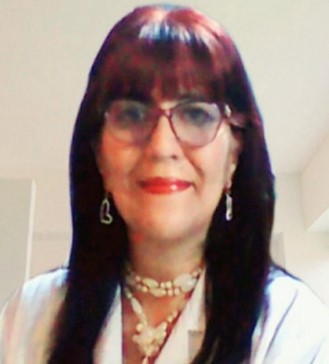
Universidad de Guayaquil.
Role in the Project: Researcher.
Contact info: ana.grijalvae@ug.edu.ec / 0992309017
As a research professor, I am pleased to introduce myself as PhD Ana Grijalva Endara, Doctor of Environmental Sciences, with an emphasis on water and its impact on the ecosystem and human health. Through my academic training and research experience, I have gained in-depth knowledge about current environmental challenges and how this situation affects our society.
My passion for understanding the complex interactions between water, the ecosystem, and human health has led me to conduct extensive research in this field. My approach is focused on identifying the factors that contribute to water degradation and its consequences for biodiversity and the health of communities. So much so, that my doctoral thesis topic was Water quality and eutrophication status of the Estero Salado de Guayaquil, Ecuador, studying branches A, B, C and D for 12 consecutive months.
As a teacher, my goal is to pass this knowledge on to students, fostering a deep understanding of environmental issues and promoting innovative ideas. Through interactive methodologies and practical projects, I seek to develop in my students environmental awareness and the necessary skills to address the challenges of water and the ecosystem.
In addition to my teaching work, I continue to actively research to contribute to the advancement of knowledge in my area of expertise. Participating in conferences and publishing my research are key aspects of my work as a teaching researcher.
In summary, as a research professor and PhD in Environmental Sciences, I consider it urgent to explore the impact of water on the ecosystem and human health. Through my teaching and research work, I aspire to raise awareness and promote sustainable solutions to preserve our environment and ensure a healthy future for generations to come. Therefore, I would be pleased, and an honor, to join the REMARCO Researchers network, in research related to acidification, eutrophication and polluting factors.
Oceanographer, MSc. in Climate Change. Oceanógrafo, MSc. en Cambio Climático.
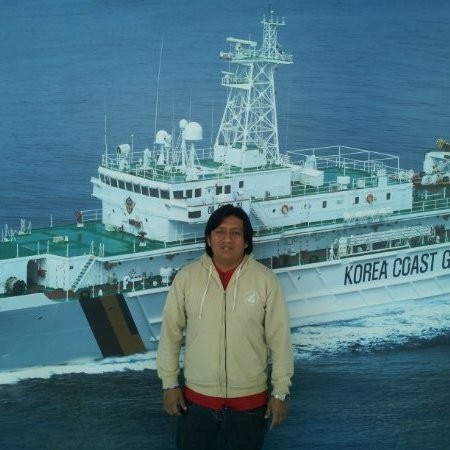
Instituto Público de Investigación de Acuicultura y Pesca (IPIAP)
Role in the Project: Technical member of the group
Contact info: mhurtadodominguez@gmail.com, mhurtado@institutopesca.gob.ec / (+593) 998473778.
Oceanographer specialized in environmental sciences with a master's degree in Climate Change, in charge of the physical oceanography laboratory of the Instituto Público de Investigación de Acuicultura y Pesca. Coordination of the Climate Variability Program that consists of permanent monitoring in stations 10 miles offshore in various ports of the Ecuadorian continent. Additionally, I have been actively participating in the monitoring of the seep (natural ocean acidification) located in Roca Redonda, Galapagos, taking oceanographic, biological and specifically ocean acidification information (this project is expected to last 5 years). Involved in issues of Climate Variability, Climate Change, environmental management, oceanography for around 20 years.
María José Marin Jarrin. Oceanographer, M.Sc., Ph. D. in Earth Sciences

Escuela Superior Politecnica del Litoral (ESPOL).
Role in the Project: ESPOL Coordinator of the Ocean Acidification component in Galapagos
Contact info: mjmarin@espol.edu.ec
Maria Jose Marin Jarrin is an oceanographer, with a Ph.D. in Earth Sciences from the Department of Earth Sciences, University of Oregon, Eugene, OR, USA. In her PhD she worked with models and observations to determine the variability of the circulation of the Coos estuary. She is a professor at the Faculty of Marine Engineering and Ocean Sciences of subjects such as Biogeochemistry, Fisheries Oceanography, and Climatology and Meteorology. She is also the coordinator of Galapagos Marine Research and Exploration (GMaRE), product of an agreement with the Charles Darwin Foundation (CDF). The GMaRE laboratory, located in Puerto Ayora at CDF, carries out projects such as Ocean Acidification, Microplastics, Equatorial and Coastal Oceanography, etc., and brings together scientists and experts with junior researchers and students for the development of research in Galapagos.
Francisco Navarrete-Mier. Marine Biologist, MSc. in Aquaculture, PhD in Marine Ecology

Universidad Laica Eloy Alfaro de Manabí (ULRAM), Equatorial Biome & Ocean Acidification (EBIOAC Lab).
Role in the Project: Researcher in Ocean Acidification component
Contact info: f.navarretemier@gmail.com
Marine Biologist, MSc. in Aquaculture and PhD in Marine Ecology from the Universidad de Murcia, Spain. He has participated in multiple research projects on the environmental impacts of aquaculture and has collaborated with several laboratories in Spain, Italy, Portugal, France and Ecuador. He is currently a full professor at the Faculty of Marine Sciences of the Universidad Laica Eloy Alfaro de Manabí, and co-directs the EBIOAC Equatorial Biome and Ocean Acidification research group. His research interests are focused on the ecological and behavioral alterations of native marine fauna under predicted scenarios of ocean acidification. He is also interested in the study of the development of behavioral syndromes and their relevance in aquatic ecosystems.
Paola Romero Crespo. PhD. in Mineral Resources, Energy and Environment Engineering.

Escuela Superior Politécnica del Litoral (ESPOL). Facultad de Ingeniería en Ciencias de la Tierra (FICT).
Role in the Project: Researcher in the Eutrophication and Chemical Contamination component.
Contact info: plromero@espol.edu.ec
At ESPOL I am a professor and I participate in some research projects, specifically in this project I contribute with my experience in water resources and hydrochemistry, in addition to planning field trips for sampling and development of fact sheets.
Isabel Timpe Vera. Researcher/Climate change and pollution in marine ecosystems/ Master in Applied Sciences

Galapagos Marine Research and Exploration Program (GMaRE), Facultad de Ingenieria Maritima y Ciencias del Mar (FIMCM), Escuela Superior Politecnica del Litoral (ESPOL)
Role in the Project: Counterpart of the micro-plastics component in Galapagos.
Contact info: mtimpe@espol.edu.ec
Since 2018 I have been part of the Galapagos Marine Research and Exploration (GMaRE), a program developed by ESPOL and the Charles Darwin Foundation to strengthen the study of marine ecosystems in Galapagos. From this program and in conjunction with local management institutions and the island community, I have worked on the study of the impacts of climate change on the islands, specifically in the ocean acidification component (since 2018). My role in this component has been to provide assistance (logistics, administrative and execution) for the development of the "Program for Monitoring Ocean Acidification in the Galapagos Marine Reserve" executed in conjunction with the Directorate of the Galapagos National Park.
Since August 2022 I have been in charge of coordinating the project for the 'monitoring of the impacts of micro-plastics in the ecosystems of the Galapagos Marine Reserve', executed jointly with the DPNG and INOCAR with the support of the International Organization of Atomic Energy (IAEA). It is expected to have results of the first phase of this project by the end of 2022 and to continue with its implementation during the next few years.
Priscila Estefanía Valverde Armas. Chemical Engineer, PhD. in Chemical Process Engineering..

Escuela Superior Politécnica del Litoral (ESPOL).
Role in the Project: Researcher in the Ocean Acidification component
Contact info: priesval@espol.edu.ec, +593 986781951
Professor-researcher at ESPOL, my research interests are focused on conservation of water resources, electrochemical processes applied to water treatment. This type of research is encouraged in engineering graduation projects. I am interested in continuing with the investigation of electrodeposition of metals using ionic liquid systems. I have collaborated in educational management projects and currently, as an Ecuadorian counterpart, I direct the project “CO2-Enhanced Oil Recovery (EOR) for Carbon Capture Utilization and Storage (CCUS) in Colombia and Ecuador: Norwegian initiative”. This project is carried out in collaboration with the National University of Colombia and the University of Bergen, financed by the Norwegian Agency for Development Cooperation NORAD and aims to promote sustainable oil production in the participating southern countries.2-Enhanced Oil Recovery (EOR) for Carbon Capture Utilization and Storage (CCUS) in Colombia and Ecuador: Norwegian initiative”. Este proyecto se realiza en colaboración con la Universidad Nacional de Colombia y la Universidad de Bergen, financiado por la Agencia Noruega para el Desarrollo de la Cooperación NORAD y tiene como objetivo fomentar una producción petrolera sostenible en los países del sur participantes.
Johanna Lisseth Zambrano Anchundia. Petroleum Engineer.

Escuela Superior Politécnica del Litoral (ESPOL).
Role in the Project: Communication Focal Point – Ecuador.
Contact info: jolizamb@espol.edu.ec, +593 980193338
I currently hold the position of Laboratory Analyst at the Escuela Superior Politécnica del Litoral, I work at the Petroleum and Drilling Fluids Laboratory.
Progress and Challenges
Currently in Ecuador there are several institutions working on the theme of Sustainable Development Goal 14: ESPOL: Escuela Superior Politécnica del Litoral; INOCAR: Navy Oceanographic Institute; INP: National Fisheries Institute, ULEAM: Universidad Laica Eloy Alfaro de Manabí.
